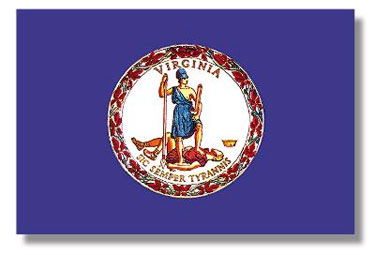I had a five-day jury trial last week (i.e., March 4-8) so I apologize for missing the 150th birthday of the federal false claims act on March 2, 2013.
I received the “birthday card” below from qui tam lawyer extraordinaire Jim Helmer (while I was at trial) and I wanted to share it with you all now.
_______________________________________________________
Greetings.
Today is the 150th anniversary of President Lincoln’s execution of the False Claims Act.
The original Act was four handwritten pages. Each page is in a different cursive handwriting. The Act would not be printed until several years later.
Congress began debating the need for protection from war profiteers in 1862. At that time there was sentiment that those who cheated on their federal contracts should be executed for treason as war criminals. The argument then shifted to trying such villains not in a civil court but rather before a military courts martial and applying military discipline. Both such concepts were eventually rejected as the double damages and $2,000 per false claim penalties were determined to be a sufficient deterrent. In today’s dollars the $2,000 penalty is equivalent to about $17,000.
Contrast Congress’ 1863 rage with the 1943 debates over repealing the Act due to parasitic lawsuits. In 1943 several Congressman attacked not the contractors who cheated the taxpayers but rather the whistleblowers who brought qui tam actions, referring to such relators as “shysters.” In fact, the House voted on April Fool’s Day in 1943 (with only 26 members present and hearing no testimony) to repeal the False Claims Act’s qui tam provisions. The previous year the Senate had itself passed such a bill (S. 2707).
But in 1943, led by testimony from one relator from St. Louis, Missouri, the Senate rejected the House’s repeal attempt and instead enacted an amendment to the qui tam provisions which barred any relator’s suit when the government already had any knowledge of the fraud. While qui tam survived, this change effectively meant that any qui tam case which was brought would be dismissed as the government could always find somebody who knew something about the fraud. In fact, DOJ’s Civil Fraud Division had just one lawyer assigned specifically to so move to dismiss every qui tam case filed after 1943. It turned out to be a part-time government job with no heavy lifting. That is why there are virtually no qui tam reported decisions from 1943 until 1986. The handful of qui tam cases filed during this period all met premature demises. DOJ’s main conference room in Washington is now named after the anti-qui tam specialist who single-handedly accounted for more dismissals of relators’ suits than anyone.
The 1986 Amendments, of course, eliminated the “any government knowledge” defense to qui tam actions and substituted the public disclosure sections in its place. This change—and some others to encourage and incentivize private suits—revitalized America’s fight against those who fail to turn the square corners with the government.
False Claims Act and its Amendments have been signed by four Presidents: Lincoln (1863), F. Roosevelt (1943), Reagan (1986) and Obama (2009 and twice in 2010). It is perhaps significant that both major political parties are represented by such leaders.
Pendulums swing. The successes of political parties waxes and wanes. It is hard to know where you are if you do not know where you have been. We have a 150 year history to guide us. Hopefully, with vigilance, there will be other great anniversaries to celebrate.
___________________________________________
And to that, Jim, I add my hearty Amen!
Another point of that may be of interest to readers comes to us from Columbia Missouri from the Columbia Tribune. It seems that none other than Brooks Brothers, a name well-known in men’s fashion, was one of the single biggest violators of the original false claims act. Brooks Brothers apparently supplied uniforms for the Union Army that were not quite up to par.
